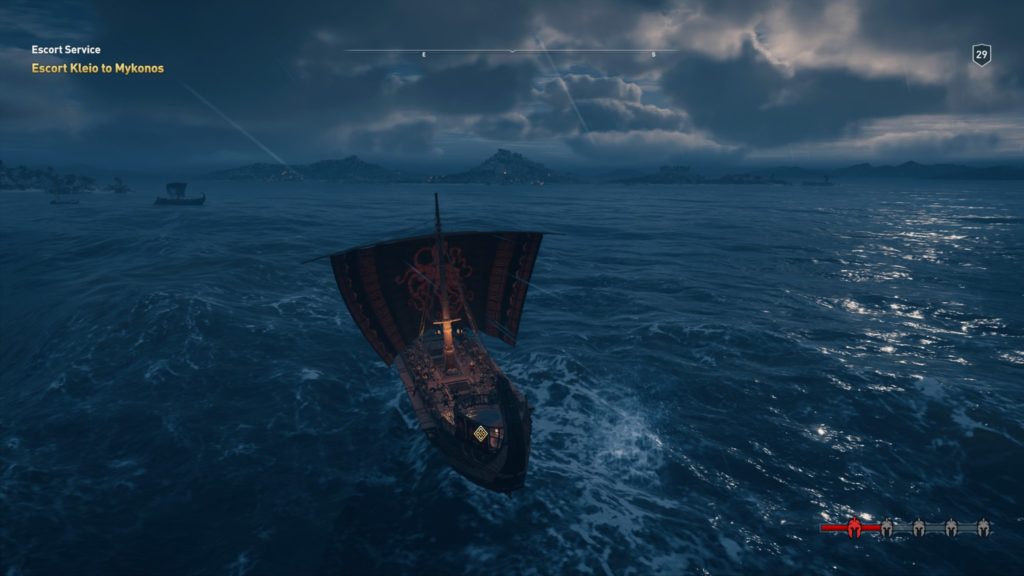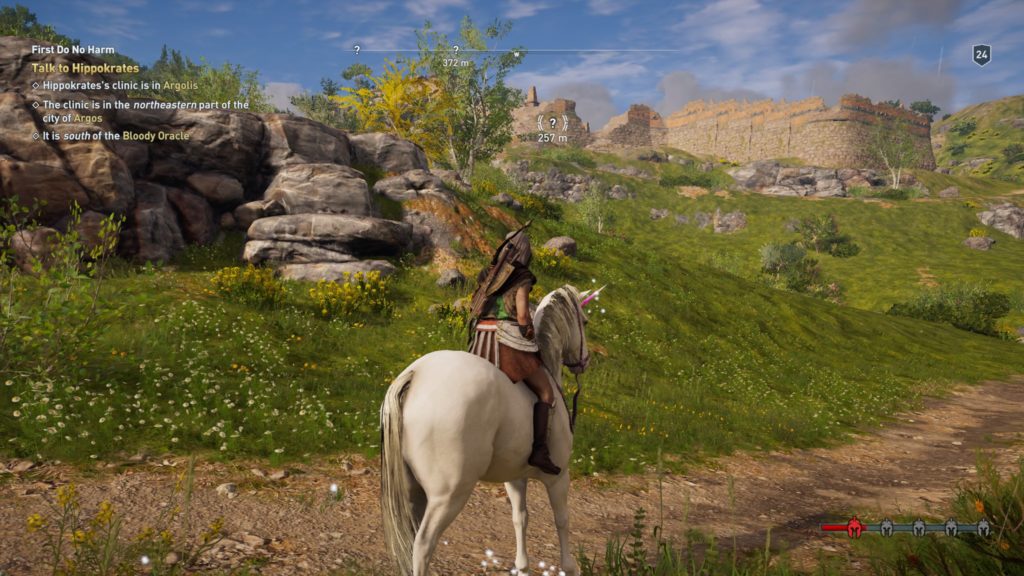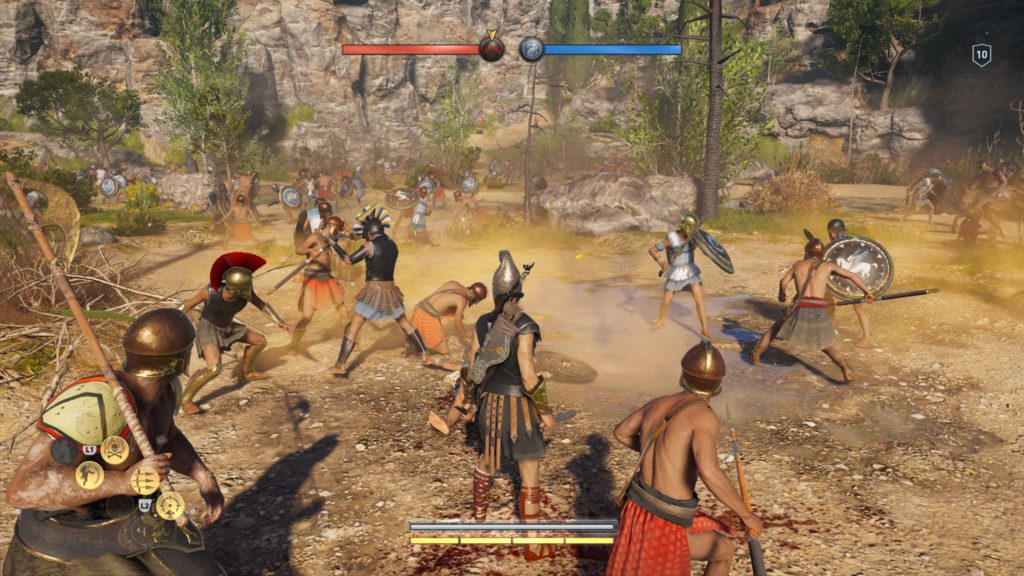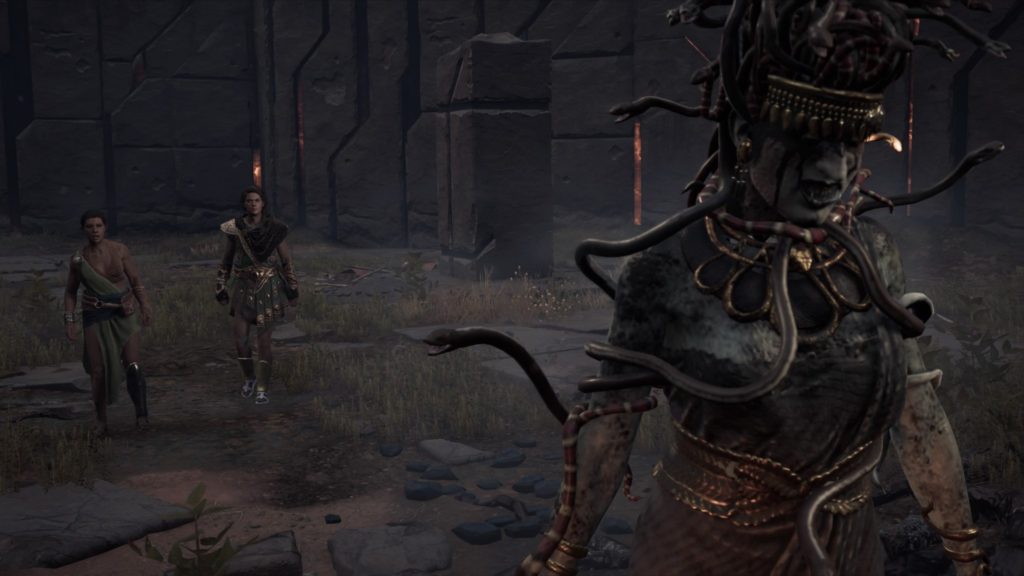- Genre: Action/Adventure
- Platform: PS5
- Also Available On: PS4, Xbox One, Xbox Series, PC
Is it weird to say that the thirteenth entry in a series feels like a breath of fresh air? This one absolutely does. If I look at the recent super open world AC entries I loved Origins, I liked Odyssey, and then Valhalla totally lost me. As the series got bigger it became less about stealth and more about RPG systems. The environments were impressive as hell, but they grew increasingly empty. The games just lost what made AC fun for me. In going smaller for Mirage, it feels like a return to form combined with iteration learned in the larger entries, leading to something that feels like a better version of where the series was going for the AC2 trilogy of titles.
To me, one-hit assassinations were essential to Assassin’s Creed. The open world titles starting with Origins did away with that. You could improve your gear and get skill upgrades to eventually get to that point in those games, but by the time Valhalla came around it was clear that they wanted to steer you into combat. My issue there is that the combat was ultimately not that great. One-on-one it worked pretty well, but as the target count increased it became increasingly annoying to deal with the timing of parries and dodges. Oddly enough, Mirage manages to kind of solve both problems.
In the few situations where I did get into combat it was much improved, and to me it was simple – parries were hugely powerful. My target count problem in AC was ultimately that clearing out the crowd was a huge chore. You could parry and dodge, but it would take what felt like forever to clear a crowd. In Mirage, it’s one or two parries max to stun an enemy and the stun state is a guaranteed kill. That puts it in the territory of assassinations in terms of speed and efficiency. It removes so much of the drag of combat and makes combat fun again. However, they also improved some of the enemy attack order, so it feels more like watching for one attack at a time, and less like randomly being spammed by a group. It’s a small change with huge ramifications.
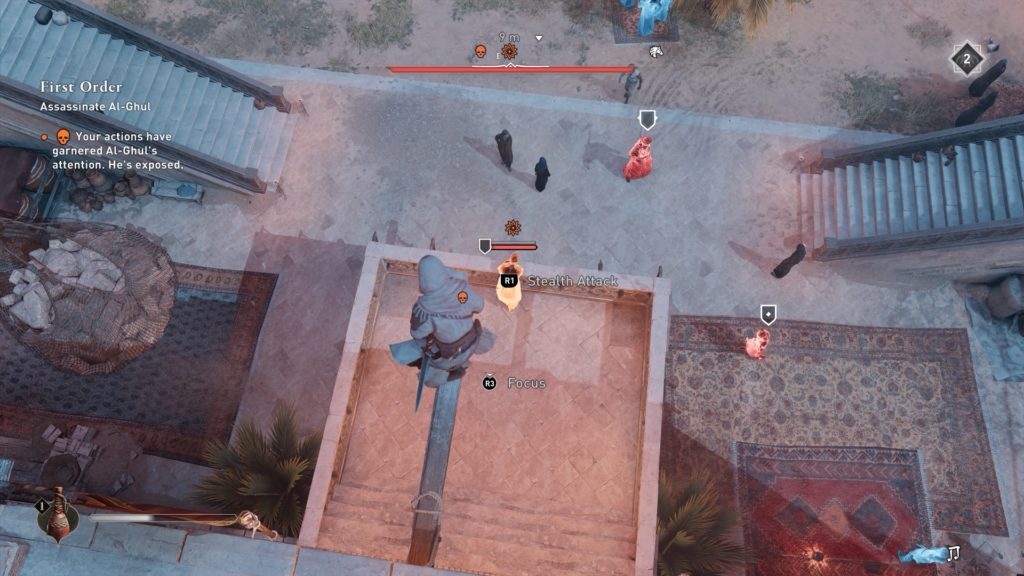
However, the big thing is that literally EVERYTHING can be assassinated fully. Normal NPCs, armored NPCs, all but a handful of bosses. If you choose to, this game has returned to the point where you can run the experience full stealth and treat it as more of a puzzle game instead of action. To me that is the perfect experience. I love the process of finding paths through enemy bases; the process of pulling enemies to stealth areas to get rid of them safely; the process of finding ways to get through locked doors into safe areas. Being able to solely focus on that is the best way for me to enjoy this type of gameplay, so it being a sole focus is such a huge improvement back to what I wanted from this series.
The other important thing I suppose is that this game is short. It takes place specifically within Baghdad and a very limited surrounding desert area and focuses on a single quick 5 target story. However, that isn’t saying that it feels like a skimpy amount of content. What it feels like is a practical and good amount of content. Each core target takes place within a series of smaller subquests, often involving the search for clues to their location and name. There’s a nice pattern that evolves here where you get some story and interactions with NPCs, then a bit of stealth for investigating, then a big final segment to assassinate the target. It’s got a rhythm that works perfectly in terms of pacing. All told it ends up being about 20 hours if you do most of the content in place, which was long enough to feel meaty but short enough to not drag out.
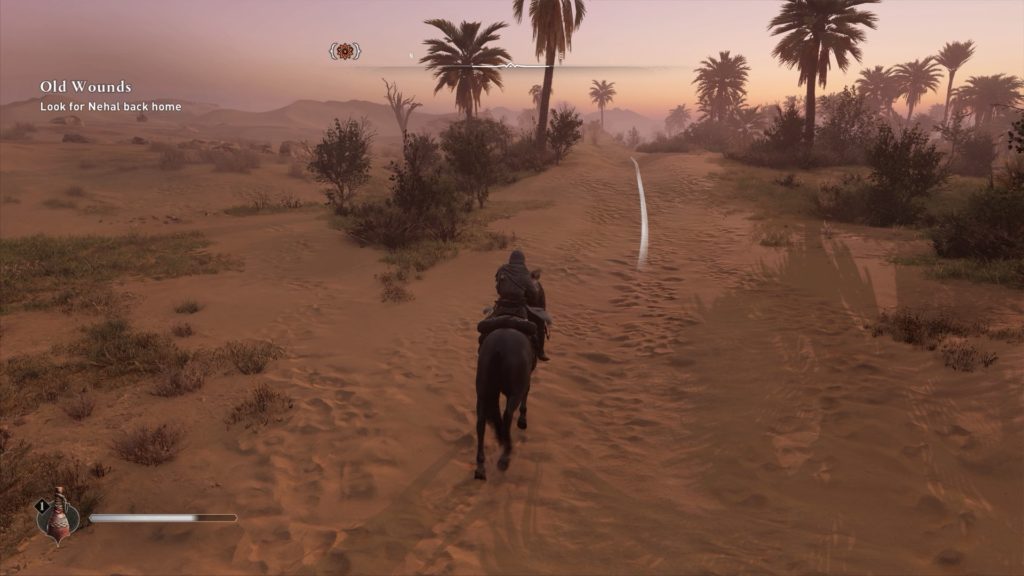
In my Valhalla ramblings I said:
This series is ready for that next step forward, and it’s got some great examples to look at if they’re ready to make that push.
I can’t tell if Mirage is necessarily that step forward, but it at least feels like recognition that the formula was stale. This is obviously a DLC that got turned into a standalone title, but whether or not that was an accident it ended up to the series’ benefit. This is such a focused and fun experience that it makes me hope that they push for these tighter experiences. It gets rid of so much unnecessary bulk to just make a fun game and ended up being my favorite AC since at least Origins, and likely since Black Flag. If you’ve been on the fence for the series for the past few years that’s probably for good reason, but this is a pretty good spot to jump back in if you’ve got the itch for sneaking around.



